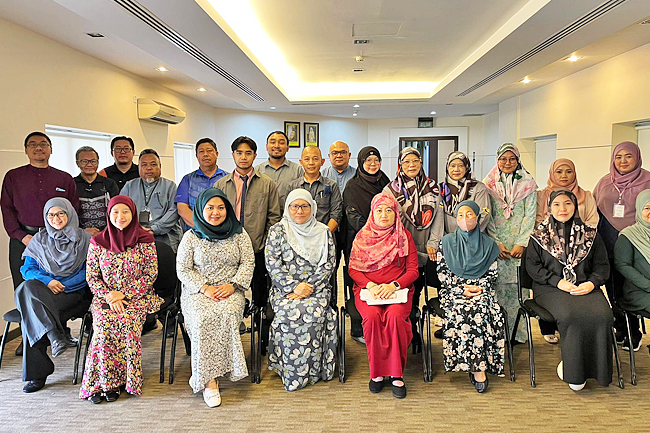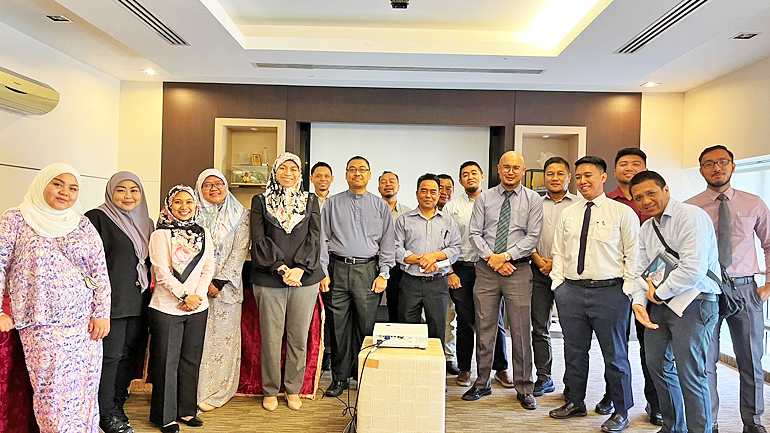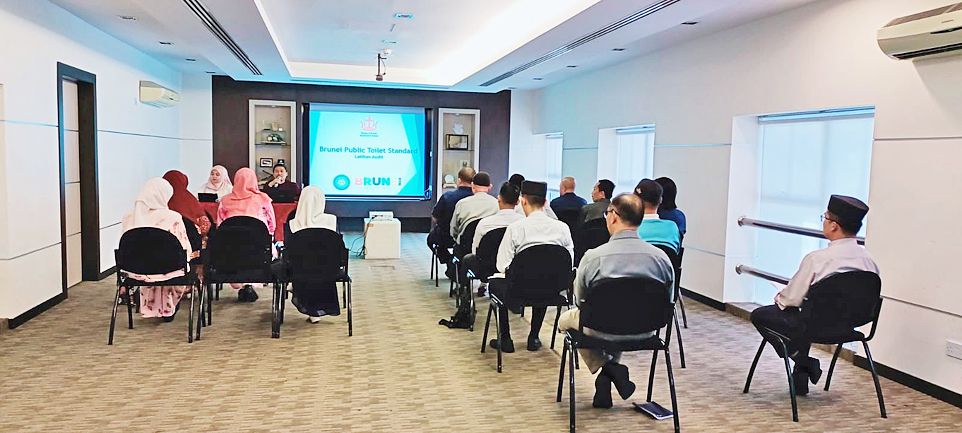Hygiene meets hospitality as cleanliness fuels tourism’s future.
Maintaining cleanliness is of utmost importance in shaping a visitor’s initial impression, influencing their overall perception and the quality of their tourism experience.
In a nation such as Brunei Darussalam, renowned for harmonising modern infrastructure with pristine natural beauty, a steadfast commitment to cleanliness pervades every aspect of the visitor experience.
Throughout the years, Brunei has steadfastly embraced cleanliness as a fundamental pillar of its tourism strategy.
Acknowledging its pivotal role, local authorities have launched numerous cleanliness initiatives, collaborating closely with government entities and private sectors to ensure the consistent upkeep of public facilities.
Regular inspections and cleaning routines are conducted for public restrooms located near popular tourist destinations and major attractions in Brunei, ensuring a consistently high level of hygiene and cleanliness.
In recent years, a dedicated drive to elevate the quality of public toilets has been evident.
Various initiatives have been set in motion to ensure the ongoing cleanliness of these facilities, with the Ministry of Primary Resources and Tourism (MPRT), in collaboration with the Tourism Development Department and local authorities, taking the lead in championing these efforts.
With a devoted commitment to routine cleaning and maintenance schedules, complemented by robust monitoring systems, Brunei spares no effort in preserving the cleanliness of its public sanitation facilities.
Recognising that clean public toilets are essential for public health, the ministry’s collective endeavours extend to supporting infrastructure enhancements and meticulous maintenance not only at places of interest, museums, department stores, restaurants, and food courts but also entail a shared responsibility for responsible toilet usage among patrons and shop owners.
Another initiative carried out by MPRT would be the ASEAN Public Toilet Standard (APTS) Auditor Training for all government ministries and departments.
Divided into 12 sessions throughout July 8 to August 26, the training saw a total of 189 focal government officials primarily in charge of the asset management for their respective ministries and departments.

The APTS Auditor Training was part of the action plan to ensure the cleanliness of toilets in the government, including institutions of higher education and schools, and the private sector.
The objective of the auditor training is to educate and train the focal government officials in planning and performing audits to public toilets’ quality, management and procedures in order to assess their performance and conformity with the APTS.
The one-day training for each session was conducted by officers from Tourism Development Department. Content of the training consisted of theory and practical session where the focal government officials were given real toilet auditing experience at the MPRT.

Under the APTS (PBD 32:2016) which was endorsed by the Brunei’s National Standards Centre in 2016, four main criteria are assessed – Design and Environmental Management System; Amenities and Facilities; Cleanliness and Safety.
The main criteria is subdivided into 82 requirements, each carrying a grading and maximum mark of 90. A public toilet passes the audit when it reaches 70 per cent (and above) of the total score. The details of grading are A (90 per cent and above), B (70 to 89 per cent), C (55 to 69 per cent), D (54 per cent) and E (53 per cent and below).
Through these training initiatives, the aim was to ensure that every government ministry and department in Brunei would derive benefits from the implementation of the APTS Standard.
This implementation is expected to result in notable enhancements in several key areas, including customer/tourist satisfaction, fostering improved toilet etiquette, discouraging vandalism and unlawful activities, and ultimately elevating hygiene and comfort levels for all restroom visitors.
Over the past two years, the Tourism Development Department has undertaken a comprehensive training programme titled ‘The Role of Clean and Hygienic Public Toilets’. This initiative has extended its reach to encompass restaurants, shopping malls, checkpoints, markets, guest houses, and beaches.
The training sessions have welcomed a diverse range of participants, including owners, managers, supervisors, and frontline government employees. The primary objective of these sessions is to impart knowledge and raise awareness among stakeholders regarding public toilet hygiene, as well as to educate them on effective toilet cleaning procedures employing best practices.

Through sustained efforts and a comprehensive, whole-of-nation approach strategy, the ministry aspires to achieve enhanced management and cleanliness standards for public toilets across various sectors in the country. This includes government institutions, such as higher education institutions and schools, as well as private enterprises.
First impressions count, and cleanliness is undoubtedly an intrinsic part of this. For a tourist, pristine streets, immaculate public spaces, and clean public toilets convey a sense of care, respect, and discipline, essential for any country’s image.
In Brunei, cleanliness not only guarantees a pleasant tourist experience but also aligns with the nation’s core values of respect, discipline, and Islamic integrity called Malay Islamic Monarchy.
At the heart of these initiatives lies Brunei Darussalam’s commitment to providing an immaculate and healthy environment for both its citizens and tourists, and to succeed in improving the cleanliness of our public toilets, we need strong support and collective efforts from all stakeholders, including cleaning contractors, cleaners and the public.
By placing a strong emphasis on cleanliness, the country not only elevates its allure as a tourist hotspot for those in pursuit of not only natural and cultural splendour but also a secure, sanitary, and orderly destination. – Ministry of Primary Resources and Tourism


